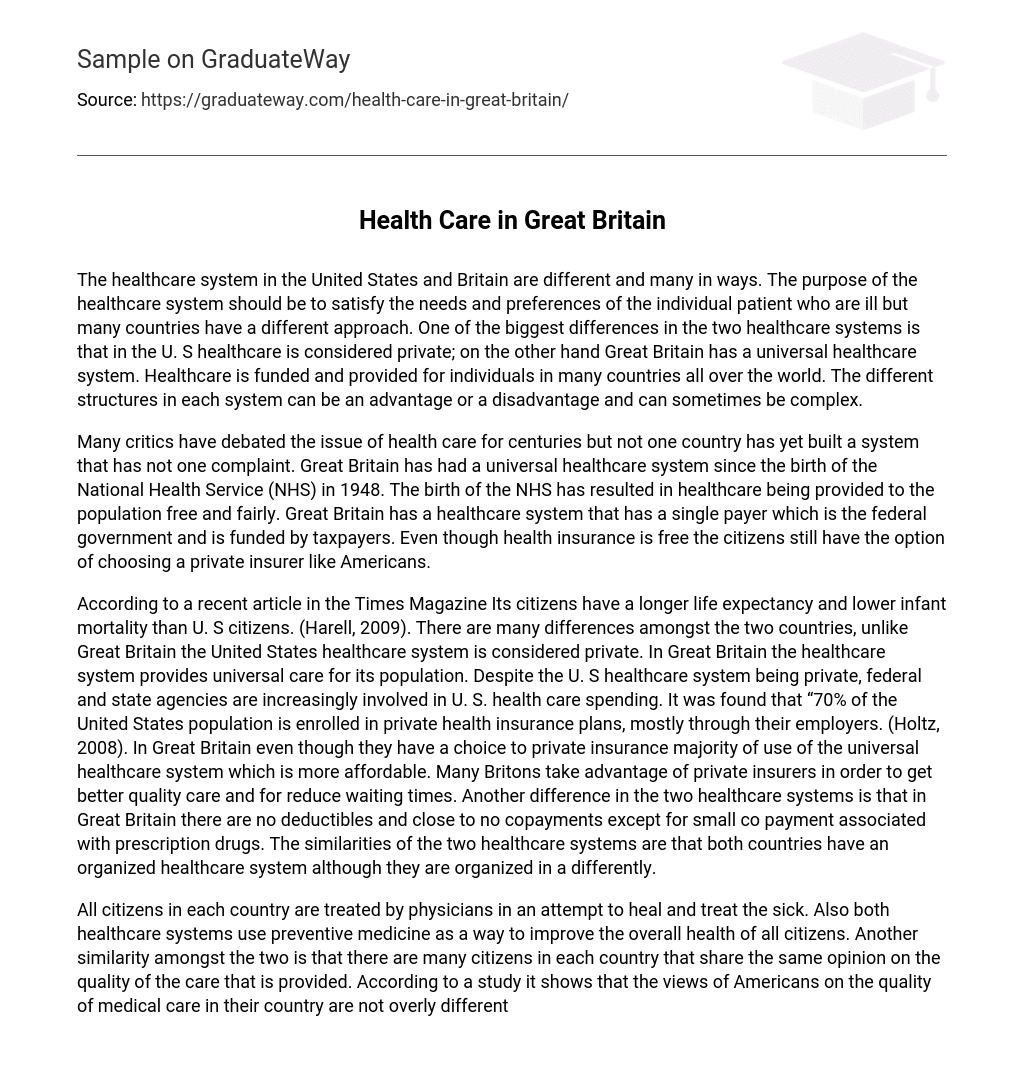The healthcare systems in the United States and Britain vary significantly. While both aim to meet the needs and preferences of individual patients, different countries have adopted divergent approaches. A key distinction lies in their funding sources: the U.S. system relies on private funds, while Great Britain has a universal healthcare system. Numerous nations worldwide allocate resources to support individuals’ healthcare services. The unique structures within each system offer advantages, disadvantages, and can be intricate.
The issue of healthcare has long been a topic of discussion, with no nation managing to establish an ideal system that pleases everyone. Nevertheless, since 1948, Great Britain has introduced the National Health Service (NHS), offering universal and free healthcare for all citizens. The NHS operates through a single-payer model wherein the government acts as the exclusive payer using taxpayer funds. Besides the public healthcare option, individuals in Great Britain also have the freedom to opt for private insurance, much like Americans.
According to Harell’s 2009 article in the Times Magazine, Great Britain has a healthcare system that provides universal care to its population. This results in longer life expectancy and lower infant mortality rates compared to the United States. In contrast, the United States has a private healthcare system; however, federal and state agencies are increasingly involved in healthcare spending. Holtz stated in 2008 that approximately 70% of Americans have private health insurance plans through their employers. On the other hand, most people in Great Britain rely on the more affordable universal healthcare system, although some choose private insurance for better quality care and shorter waiting times. Additionally, Great Britain does not have deductibles or many copayments except for prescription drugs. Despite these differences, both countries have organized healthcare systems with distinct structures.
Both the United States and Great Britain offer healthcare services to their citizens in order to provide healing and treatment for the sick. Additionally, both countries employ preventive medicine strategies to enhance the overall health of their populations. Moreover, a study indicates that there is a shared sentiment among many individuals in both nations when it comes to the quality of care provided. According to the study, 48% of Americans, 52% of Canadians, and 42% of Britons express satisfaction with the quality of medical care they receive.
Initially, I held the belief that universal healthcare was superior after researching Great Britain’s healthcare system. However, my perspective gradually changed after gaining knowledge about both systems. While the US healthcare system may not be as affordable as some others, it does offer high-quality care. The lack of health coverage for American citizens is one of the main reasons why I considered living in a country with universal healthcare.
According to Holtz (2010), approximately 40 million Americans in the U.S. do not have healthcare coverage due to expensive health insurance plans and high premiums. This large number is concerning to me, and it often makes me contemplate how different things would be if healthcare was provided at no cost in the United States. However, in Great Britain, where universal healthcare is implemented, many medical professionals may overlook the fact that they are being compensated by the people they serve. Consequently, this could potentially result in a lower quality of service compared to the care available in the USA for those who can afford insurance premiums. Therefore, both systems have their own advantages and disadvantages. Personally, I believe it would be ideal for every American citizen to receive free and equitable healthcare while ensuring that all citizens of the U.S. have access.
S to receive quality care. If I could incorporate any aspect of Great Britain’s Healthcare system into the U. S healthcare system, it would be a new plan that exempts all children and senior citizens from paying fees for prescriptions and medications. This would be my preference as the elderly and children are the demographic groups that have the most doctor visits and incur the highest costs for their medications and prescriptions. However, as I am unable to make any alterations at the moment, I would opt to retain our current system because I have come to understand that every system has its drawbacks and receives numerous complaints.





